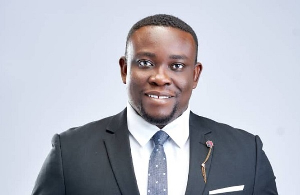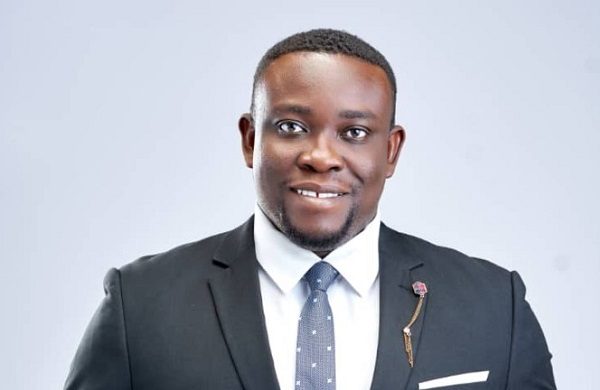 Kwesi Parker-Wilson is a Ghanaian journalist
Kwesi Parker-Wilson is a Ghanaian journalist
Ghana has long been hailed as a beacon of democracy in West Africa, but a growing cancer threatens the foundation of that image: electoral violence. From Ayawaso West Wuogon to Kasoa and now Ablekuma North, a disturbing trend has emerged—a retaliatory cycle of political violence that is eroding public trust and poisoning the spirit of democracy.
In January 2019, the Ayawaso West Wuogon by-election was marred by state-sponsored violence. Masked men allegedly affiliated with national security stormed polling stations, physically assaulting voters and members of the NDC. One of the most disturbing images was of Member of Parliament for Ningo Prampram (Now Communications Minister) Sam George being publicly slapped by a security operative. The images shocked the nation and sparked public outrage, but accountability was slow and political consequences minimal.
Then came the tragic shooting incident in Kasoa during the 2020 registration exercise, in a clash linked to political tensions. Once again, Ghanaians watched as violence claimed innocent lives during the 2020 elections, and yet, the culture of impunity persisted.
Fast forward to 2025. In the rerun of the Ablekuma North parliamentary election, violence has resurfaced with familiar ferocity. Reports detail assaults on voters, journalists, and even high-ranking political figures. The most shocking was the assault on former Fisheries Minister and former Member of Parliament, Hawa Koomson, who was punched/slapped in a “Kunfu-like” manner, kicked and manhandled by thugs at the St. Peter’s Society polling station. Eyewitnesses described a chaotic scene as security forces struggled to regain control. In the same incident, the Deputy National Organizer of the New Patriotic Party (NPP), Mr. Abdul-Lloyd Amoah, was also physically assaulted while trying to protect party agents. The polling station was temporarily shut down as fear and panic gripped the community.
Even more worrying is the posture of some members of the opposition National Democratic Congress (NDC),as of now, they are the governing party, who have justified the assault on Hawa Koomson by referring to the 2019 Ayawaso West Wuogon incident. Their logic is simple but deeply dangerous: “Sam George was slapped, so now it’s our turn.” This attitude not only deepens political division but fuels a culture where revenge replaces justice, and violence becomes the norm.
The retaliatory nature of these attacks is particularly alarming. Political parties and their loyalists seem emboldened to respond to perceived injustices with force, setting the stage for a continuous back-and-forth of electoral violence. The dangerous message being sent is that if you are wronged in one election, your revenge is justified in the next. This is not democracy; this is anarchy wrapped in the guise of political competition.
Electoral violence in Ghana thrives on three core enablers: impunity, partisanship in security agencies, and a culture that normalizes aggression as strategy. Without firm and impartial action, the next election could be even bloodier. This is why Ghana stands at a critical crossroads.
As Ghana prepares for a new chapter under the leadership of President John Dramani Mahama, there is an opportunity—and a moral imperative—to break this cycle. President Mahama has positioned himself as the man to “reset” Ghana. That reset must begin with restoring the sanctity of the electoral process and dismantling the conditions that allow violence to thrive.
President Mahama must take deliberate and courageous steps to de-escalate political tensions and restore faith in Ghana’s democratic institutions. This includes launching a truly independent and non-partisan commission to investigate all incidents of electoral violence, past and present. Such a commission must be empowered to recommend prosecutions, institutional reforms, and preventive measures without fear or favor.
Additionally, President Mahama must prioritize the de-politicization of the security services. Ghanaians must be assured that police officers and national security operatives serve the state, not political parties. This means a clear directive that no officer involved in electoral misconduct will go unpunished, regardless of their affiliation.
Equally important is the need to reform the Electoral Commission’s legal mandate to act swiftly and decisively against parties and candidates who incite or sponsor violence. Currently, the Commission often lacks the legal muscle to directly penalize or disqualify individuals or parties engaged in electoral misconduct unless the police or judiciary intervenes. A reformed legal framework should empower the EC to take immediate and independent administrative actions, such as suspending elections in violence-prone areas, issuing fines, or disqualifying violent candidates. This would serve as a strong deterrent against political thuggery.
Moreover, the EC must not merely be a referee who observes and records events, reacting only after damage has been done. In Ghana’s increasingly polarized political environment, neutrality is no longer enough. The EC must be a proactive institution that safeguards not only the logistics of elections but the foundational principles of democracy itself. This means defending the right of every citizen to vote in peace, ensuring the credibility of electoral outcomes, and holding political actors accountable to the rules of democratic engagement. Only then can the Commission be seen as a true guardian of democratic values, not just a passive facilitator.
Finally, President Mahama must partner with civil society, traditional leaders, and the media to launch a nationwide campaign on political tolerance and nonviolence. If indeed he is resetting Ghana, let it begin with a commitment to end the blood-stained cycle of revenge politicking. Only then can the reset be meaningful, lasting, and worthy of a country that once held the title of Africa’s democratic hope.
Ghana cannot afford to allow politics to become a blood sport. We must end this retaliatory cycle before it consumes our democracy entirely. The time to act is now, and the responsibility lies not just with the state, but with every Ghanaian who values peace, progress, and democratic integrity.
Let us rise as one nation and say: no more violence in our politics.
Written by Kwesi Parker-Wilson


